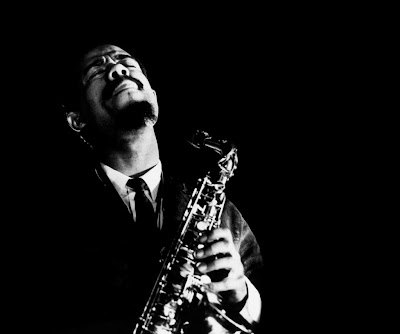'If you want to play, play a black instrument. Learn the bass. '
It was on this advice that Charles Mingus gave up his vocation as a classical cellist to become one of the greatest double bass players of bop.Still, he retained a tremendous amount of bitterness from this decision - some have blamed this for the violent and unpredictable behaviour that marked his numerous collaborations. While laying claim to the earthy realism of the blues and the spiritual that impregnated all of his work and fed his strong anti racist positions, Mingus remained preoccupied with the erudite structures he encountered while studying Bela Bartok and the romantic repertoire.
 |
| Charles Mingus |
Mingus was not fully capable of accepting all the requirement of the free jazz. Still, his music proved to be very innovative: he alternated "spontaneous polyphony' with classical counterpoint and - always terribly effectively- relentlessly varied the tempo and the beat, and he solicited the most unheard-of instrumental timbres.
 |
| Charles Mingus Eric Dolphy Sextet, 1964 |
 |
| Eric Dolphy |
____________________
"he solicited the most unheard-of instrumental timbres"
ReplyDeleteTrue! No other bass player sound as good as Mingus